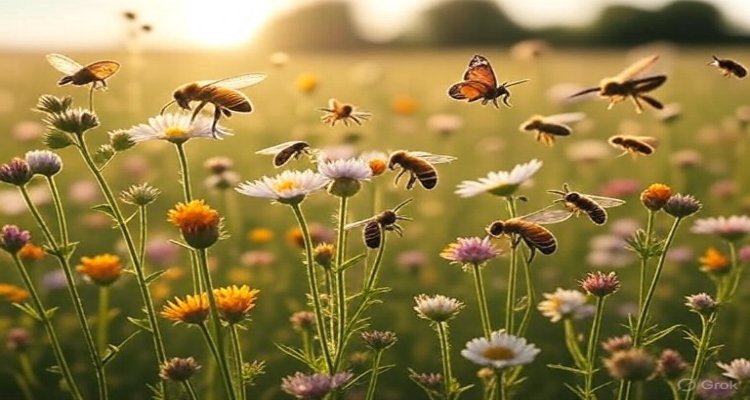The Insects That Are Disappearing Without a Sound

Insects are vanishing silently across the globe, threatening ecosystems, food security, and human survival. Here’s why their decline matters.
Introduction: A Silent Vanishing
They are the tiny architects of ecosystems, buzzing, crawling, and fluttering unnoticed in the background of our lives. Yet, without a sound, millions of insects are disappearing. Unlike the roar of vanishing tigers or the haunting silence of lost birds, the collapse of insect populations is almost imperceptible—until the consequences become unavoidable. Scientists call it an “insect apocalypse,” and its ripple effects may touch everything from food production to the stability of life on Earth.
Context & Background: The Overlooked Majority
Insects make up more than half of all known living species on the planet. They pollinate nearly 75% of global food crops, recycle nutrients, maintain soil fertility, and serve as a primary food source for countless animals.
However, recent research shows insect populations are declining at alarming rates—some estimates suggest losses of 40% over the last few decades. Unlike large mammals or birds, insects vanish quietly. A missing butterfly here, fewer fireflies there—small changes that often escape public attention but signal major ecological shifts.
The causes are interconnected: habitat destruction, pesticide use, light pollution, climate change, and urban sprawl. Each factor chips away at insect survival, creating a silent crisis.
Main Developments: A Crisis Hidden in Plain Sight
One of the starkest warnings came in 2019, when a comprehensive review published in Biological Conservation suggested that within a century, most insect species could face extinction if current trends continue. Since then, localized studies in Germany, Puerto Rico, and the United States have documented staggering declines—sometimes up to 75% in insect biomass within just a few decades.
Why does this matter? Because insects form the foundation of ecosystems. Without them, birds, reptiles, amphibians, and mammals lose food sources. Pollination-dependent crops—from apples and almonds to coffee and cacao—face reduced yields, threatening global food security.
Expert Insight & Public Reaction
“Losing insects is like pulling out the rivets from an airplane mid-flight,” says Dr. David Wagner, an entomologist at the University of Connecticut. “You don’t notice the damage immediately, but eventually the system collapses.”
Environmental groups echo this urgency, pushing for policy reforms that restrict pesticide use and promote biodiversity-friendly farming. Public awareness, however, remains limited. While campaigns to save the bees have gained traction, broader insect conservation often lacks the emotional appeal associated with charismatic wildlife.
Impact & Implications: Why It Matters for Everyone
The implications extend far beyond ecology. Consider:
- Food Security: Three out of four food crops rely on insect pollination. Declining bee and butterfly numbers directly threaten agriculture.
- Economic Costs: The global economic value of pollination services is estimated at over $200 billion annually. Insect declines put this at risk.
- Cultural Loss: Fireflies lighting up summer nights or butterflies migrating across continents are not just ecological functions—they are part of human cultural memory. Their disappearance diminishes the richness of our natural heritage.
If left unchecked, this quiet collapse could trigger cascading effects—crop failures, ecosystem imbalance, and biodiversity loss on a global scale.
Conclusion: A Call to Notice the Silence
The crisis of disappearing insects is easy to overlook precisely because it is so quiet. But silence should not be mistaken for insignificance. The fate of these tiny creatures is intertwined with our own survival. Protecting habitats, reducing pesticide reliance, planting native vegetation, and raising awareness are steps within reach.
The vanishing of insects may not echo with sound—but if ignored, its impact will thunder across generations.
DisclaimerThis article is for informational purposes only. It draws on scientific studies and expert opinions to raise awareness about insect declines but should not replace formal research or policy reports.










